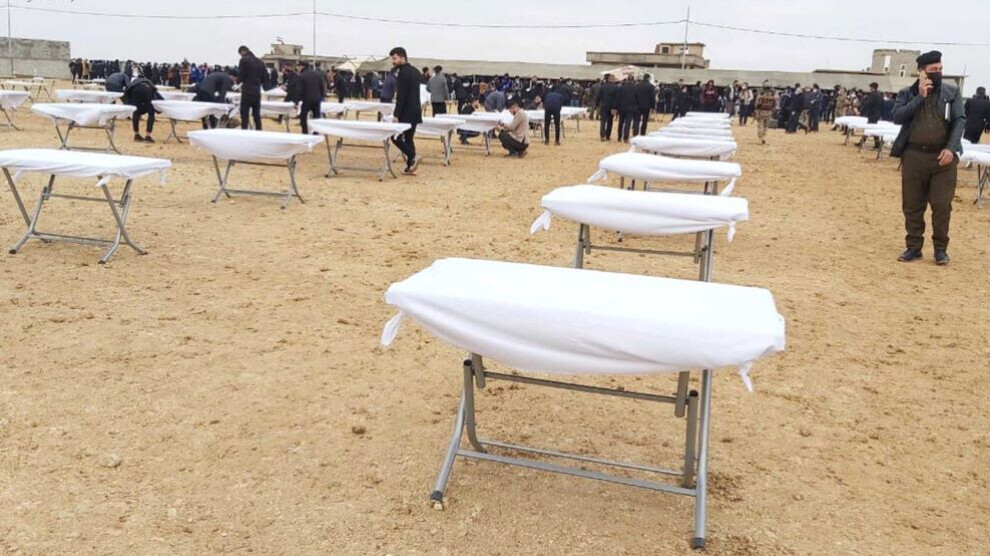The village of Kocho buries 104 of its ISIS victims today
In the village of Kocho in Shengal, 104 victims of ISIS are buried according to Yazidi tradition. Their bodies were buried in mass graves in 2014 and only now they have been identified.
In the village of Kocho in Shengal, 104 victims of ISIS are buried according to Yazidi tradition. Their bodies were buried in mass graves in 2014 and only now they have been identified.

In the Kocho village in the region of Shengal (Sinjar), 104 people are buried today according to the Yazidi tradition. They were killed and buried in mass graves during the genocide launched on 3 August 2014 by the terrorist "Islamic State". Their remains have been identified following a huge work including DNA analysis. A state memorial service took place in Baghdad on Thursday.
The village of Kocho was almost completely wiped out by ISIS in 2014. More than 1,800 people lived in the village at the time of the attack on Shengal. On 15 August ISIS carried out a massacre killing around 600 Yazidi young people and men for refusing to convert to Islam. Almost 700 women and around 300 children were abducted from Kocho and turned into sex slaves or trained to be child soldiers. While a few have escaped and others have been rescued by the Syrian Democratic Forces (SDF) and the international anti-ISIS coalition, around 400 people from Kocho are still missing.
Up to 200 mass graves in Shengal
In the region of Shengal, there are at least 200 mass graves in which some 12,000 people are buried. In Kocho alone seventeen such graves have been opened by the end of 2020. The first mass grave was uncovered in March 2019. The exhumations there are carried out by the UNITAD investigation team (United Nations Investigative Team to Promote Accountability for Crimes Committed by Daesh / ISIL) under the leadership of Karim Asad Ahmad Khan, a British human rights lawyer.